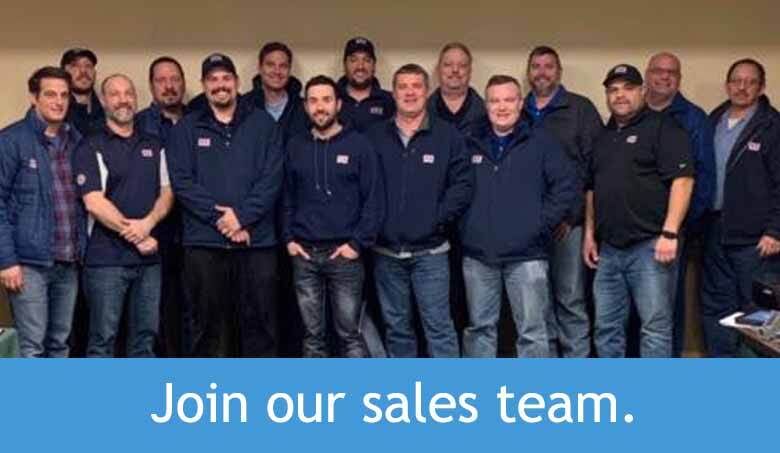Basement Drain Tile Buyer’s Guide — 12 Questions You Need to Ask

If you are having basement seepage and are thinking of installing Interior Drain Tile to keep your basement dry, here are 12 questions you need to ask any contractor who’s offering you a solution. These questions will help you discover critical information about the contractor, their solutions and services so you will be well prepared to make a smart buying decision.
12 Questions To Ask Before You Buy Drain Tile
1. What other solutions do you offer besides Drain Tile and why won’t they work as well for me?
This question is important because some companies plan to recommend Interior Drain Tile before they even meet you. Their recommendation isn’t based on your needs, it’s based on theirs. So ask them what other options they have for you. Full service waterproofing companies have a variety of effective and complementary ways to correct seepage problems that don’t require drain tile.
2. Is your interior drain tile system maintenance free?
A properly designed and installed Interior Drain Tile system doesn’t require regular maintenance. You put it in and it works. Some companies install inferior products prone to clogging; then they install cleanouts and offer services to flush out the system. Their return visits are designed as a way to get back into your home to sell you even more services. Be leery of systems requiring maintenance as part of their design.
3. Do you offer a pre-installation walk-through to prepare me for the project?
The installation of Interior Drain Tile is major surgery for your basement. During the initial visit most customers are concerned more with the solution, how soon it can be installed and of course, cost. They aren’t typically prepared to discuss the logistics and necessary preparation for the job. That’s why we include this walk-through. We’ve learned a second visit helps you satisfy questions and concerns you may not have thought about during our first visit.
4. Can you provide me with a list of referrals you’ve done in my neighborhood in the last few years?
Asking for these referrals will let you talk to a company’s previous customers to hear firsthand how their project was handled. When you get the referrals, take advantage of them. Talking to referrals is your best source of unbiased information about a company and how they operate. Make sure the company has done several jobs in your neighborhood.
5. Do you have online reviews I can read?
Another great way to learn about a company is to read their customers’ reviews on the Internet. There are sites like Yelp, BBB, Angie’s List, and even Google has reviews. And while you’re at Google, another way to dig up dirt on a company is to search the company name, then include a word after it like “problem”, “complaints”, “scam” or “ripoff”.
When you’re reading reviews keep two things in mind; the number of stars and the number of reviews. The average number of stars gives you a preview of how satisfied you can expect to be when working with a company. But also consider the number of reviews. A small number of reviews can indicate that the company is new to the industry or has only a few customers. Any of these should be a yellow flag that you should practice caution when relying on them for expert advice or years of support after the sale.
6. What is the warranty on the solution you are installing for me?
Warranties can be misleading – by design. They are used by some honest businesses to reassure you the product you purchase will perform as promised, or it will be fixed if it doesn’t. They are also used by shady businesses and manufacturers to give you a false sense of comfort. These are the warranties that seem too good to be true. For example: mechanical pumps with lifetime warranties that will give you unlimited replacements for free after the buy the first one. And then there are the drainage systems that will be serviced for centuries to come, as long as a structure is still standing. These are smoke screens used to distract you so you don’t look closer at what you’re actually buying. The truth is this. Buy a solution as if it didn’t come with a warranty. That way you won’t be distracted by the warranty terms and you will spend more time looking at the quality of what you’re getting and who’s providing it.
NOTE: Waterproofing companies offer a warranty, not a guarantee. What that means is they “promise” to come back to fix it, but won’t pay you if their system fails and causes damage.
7. What kind of sump pumps are you installing?
Basement drainage systems intercept water that wants to get into your basement. It then feeds that water into a basin where a sump pump removes it and the process starts again. The heart of the system is your sump pump. Some companies make the price of their systems lower for unsuspecting homeowners by using inferior plastic pumps that can’t properly pump larger volumes of water. Don’t be fooled. When the dryness of your basement relies on a pump, don’t settle for plastic. Insist on a cast iron primary pump. And ask for a battery backup pump also. Having two pumps with one able to use battery power is cheap “dryness insurance” for your basement. Remember, pumps are mechanical so you know at some point they will fail. So will the power coming into your home during heavy storms. Don’t be caught without a working pump when you need it most!
8. How are disputes resolved if there is an issue with your work?
As much as reputable companies try to do their best, there are times when disputes may arise. When that happens, it’s important to know your choices for finding a remedy. Can you hire your lawyer and take them to court? It’s good to find this out ahead of time because there is at least one waterproofing company that forces you into binding arbitration in order to decide the outcome of their disputes. Going this route can cost thousands of dollars and if their arbitrator rules in their favor, you can also get stuck paying their expenses for the arbitration.
9. Do you offer handyman services to help prepare my basement for the project and put it back together?
Knowing this is helpful because you may have carpeting, drywall, or a washer / dryer that is in the path of where the drain tile will be installed. And while it’s possible to hire a local handyman to do this prep work, coordinating his schedule with the waterproofers could prove to be difficult. Plus your handyman (if you are lucky enough to find one who will call you back and show up when they promise!) may not know all that is needed to completely prepare your basement, causing potential delays in getting your project started.
10. If I think I have a problem after the installation, will I be charged for the return service call?
While it’s not common, there’s always a possibility that the problem you tried to fix happens again. Sometimes this is a fault in the new system, especially if the work was done incorrectly or you we’re sold an inferior or imitation drain tile system. At times the continuing problem isn’t related to the new system at all, but rather a secondary problem that still exists such as a leaking water heater or furnace. So how do you know? Your first option is to have your waterproofer return to help you determine the source of the problem. Just make sure you pick a waterproofing company who will come back without charging you more if the problem doesn’t turn out to be your new system.
11. What type of design is your drainage system?
Experienced waterproofers know that the most efficient way to transport foundation water is through a round drainage piping system positioned next to the footing at the base of the foundation wall. Some companies have designed less effective, but easier to install systems that sit on top of the footing. Others repurpose lawn drainage systems or use a series of mini-tubes in an effort to win business from their system’s “uniqueness”. The problem with all of these unconventional systems is they do a better job at making a profit for the contractor than keeping your basement dry. So make sure you know what companies mean when they use the generic term “drain tile” to describe their drainage system.
NOTE: Round drainage piping comes in two basic types (PVC and Corrugated) that both do the job well. So don’t believe the tired argument that has long since been disproven, that one is stronger and one is prone to collapse.
12. Is your drainage pipe wrapped in a fine mesh, filtration fabric?
One of the simplest, but most important components of a properly designed and installed basement drain tile system is the filtration fabric that is the last line of defense for keeping dirt out of your drain tile and ultimately your sump pumps. When it is not used, it significantly increases the dirt and grit that enters your system which significantly decreases the life of the system. We know because we’ve replaced many drain tile systems installed by other companies that were only a few years old but were installed without this filter fabric.
There is one more question, and this is one you need to ask yourself…
13. How much are you prepared to invest to keep your basement dry?
Too often we see homeowners who use price to guide their solution and ultimately they fall short of all what they truly need.
Remember what John Ruskin said:
“It’s unwise to pay too much, but it’s worse to pay too little. When you pay too much, you lose a little money — that’s all. When you pay too little, you sometimes lose everything, because the thing you bought was incapable of doing the thing it was bought to do.”
At U.S. Waterproofing we are here to help you make an educated decision and welcome you asking us the 12 questions above as well as any others you might have about our company or our solutions.




